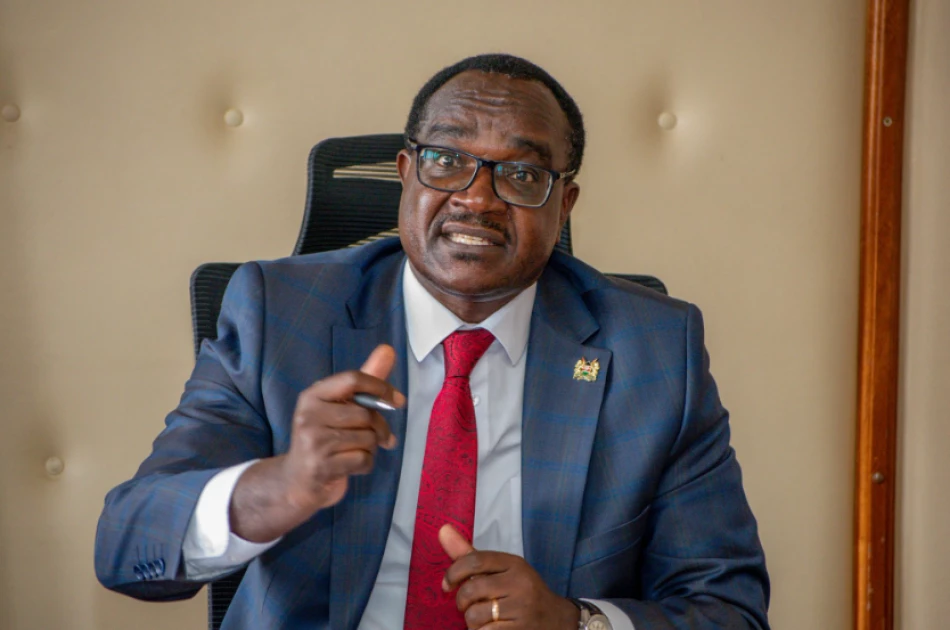Public schools choking in debt as ministry admits to Ksh.64 billion in pending bills

Education Cabinet Secretary Migos Ogamba speaks during a past meeting in his office. PHOTO | COURTESY

Audio By Vocalize
Public primary and secondary schools are
choking in debt, with the Ministry of Education admitting that schools could be
grappling with debts of up to Ksh.64 billion accumulated over the years.
According to
Education Cabinet Secretary Julius Migos Ogamba, the situation is becoming dire as
budget cuts continue to affect the education sector, leading to reduced
disbursements to schools.
Speaking when
he appeared before the National Assembly Education Committee, Ogamba admitted
that the ministry does not have the exact figure of pending bills owed by
schools.
“I didn’t come
with that figure. The figure raised by Hon. Robert Mbui of Ksh.64
billion could be correct. The question we are grappling with is: what do we do
with it? Yet we’re still not getting what we budgeted for,” he said.
According to
the ministry, schools are still not receiving what is due to them, with only
50% of the allocated funds having been disbursed this financial year.
Even with
schools well into the second term, the ministry has disbursed only Ksh.28.8
billion for 3.2 million learners, leaving a deficit of Ksh.7.5
billion for the financial year.
At the
primary level, schools received Ksh.1,420 per child annually, disbursed termly in
a 50:30:20 ratio. Despite a revised recommended rate of Ksh.2,238
proposed by the Presidential Working Party on Education Reform, funding remains
below the required amount.
Junior
secondary schools are similarly underfunded, receiving only half of the Ksh.15,043
allocated annually per learner.
The persistent
budget deficits led members of the committee, led by Julius Melly, to question
whether the country is truly providing free education, and the impact these
cuts have on the quality of learning in schools.
“If you feel
that it may be difficult for the ministry to afford it, then at some point you
need to introduce some form of cost-sharing so that parents can assist. That
could be better than insisting that you are funding education, yet it’s the
children who are affected,” said Deputy Minority Leader Robert Mbui.
The committee
challenged the ministry to declare whether the government is able to fully fund
education given the limited resources available.
“I think we
need to have this conversation as a country: can we afford to continue fully
funding education with the increasing numbers and the lack of resources we are
experiencing?” posed Committee Chair Melly.
Committee
members also raised concerns about a significant amount of capitation funds
that remain unremitted by the ministry.
For example,
every learner is supposed to receive KSh 76 for co-curricular activities in
primary schools, yet Ksh.40 remains at the ministry.


Leave a Comment